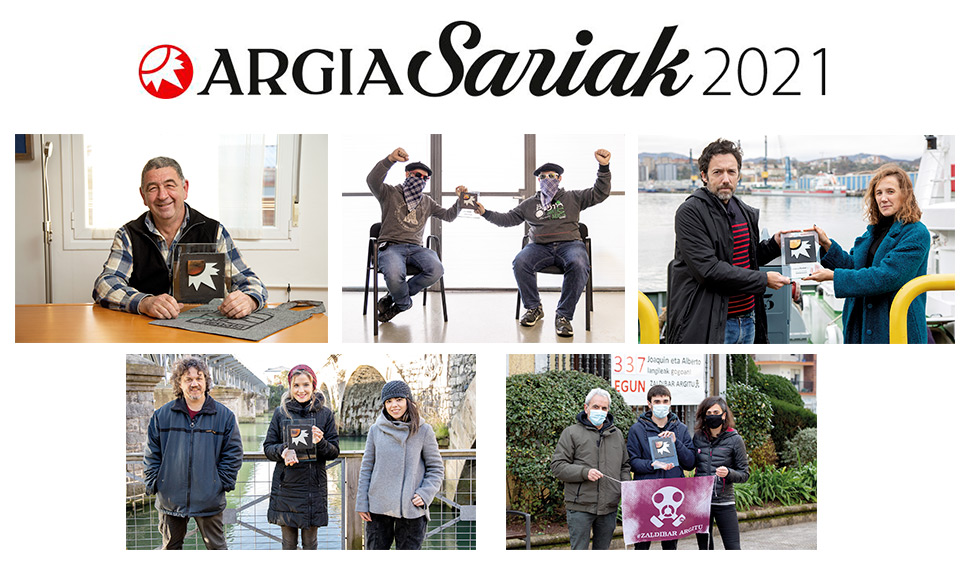The Argia Prize from the press section is for Jon Alonso
- The neighbour of Pamplona, José Miguel Etxebarria Naparra, who has been missing for 40 years, remains unaware of the merits of the case. This year’s Argia Prize is in the press section with Jon Alonso, Naparra. Case opened by the writing of the research book.

Much has been written in the press about José Miguel Etxebarria Naparra, but not enough. By 2020, it is 40 years since its disappearance. In four decades there have been moments of all kinds in the Naparra case, sometimes a lot has been talked about, most of the time a few. Some media have often followed, the majority and the biggest have been difficult. The disappearance has left a constant mark in all these years. However, the core of the issue remains to be resolved: The remains of Naparra have not yet appeared and his family continues to suffer. As the winner of the prize says, “the Naparra case is not only that of a militant who was kidnapped and killed, but also that of his family, who has been tortured, beaten, swollen and mercilessly punished.”
The author of the work met the disappeared, played with him in the old Pamplona and wanted to unite his case for the future, so that the memory would balance it correctly. The research work has not revealed the whereabouts of Naparra, although it is unknown whether any further steps will be taken along that path. In any case, this book collects everything known about the case and from now on, whoever wants to know or investigate the case, will have an inescapable reference.
In addition to the Naparra case, the documentary contains numerous details of the time in which the case was born, helping to better understand the 1980s. Furthermore, the continuing controversy surrounding the case has not been removed: “I think he was kidnapped and killed by Basque Spanish Battalion.” Given the impossibility of clarifying the case, it makes one of the most important: Don’t let them get into the “swamp of oblivion”, bringing the reader well and clearly about the complicated issue. It's not a press job, but it's a written journalism, a research journalism.
In the press section, therefore, this year’s Argia Prize will be for Jon Alonso, Naparra. Open case for writing the book












